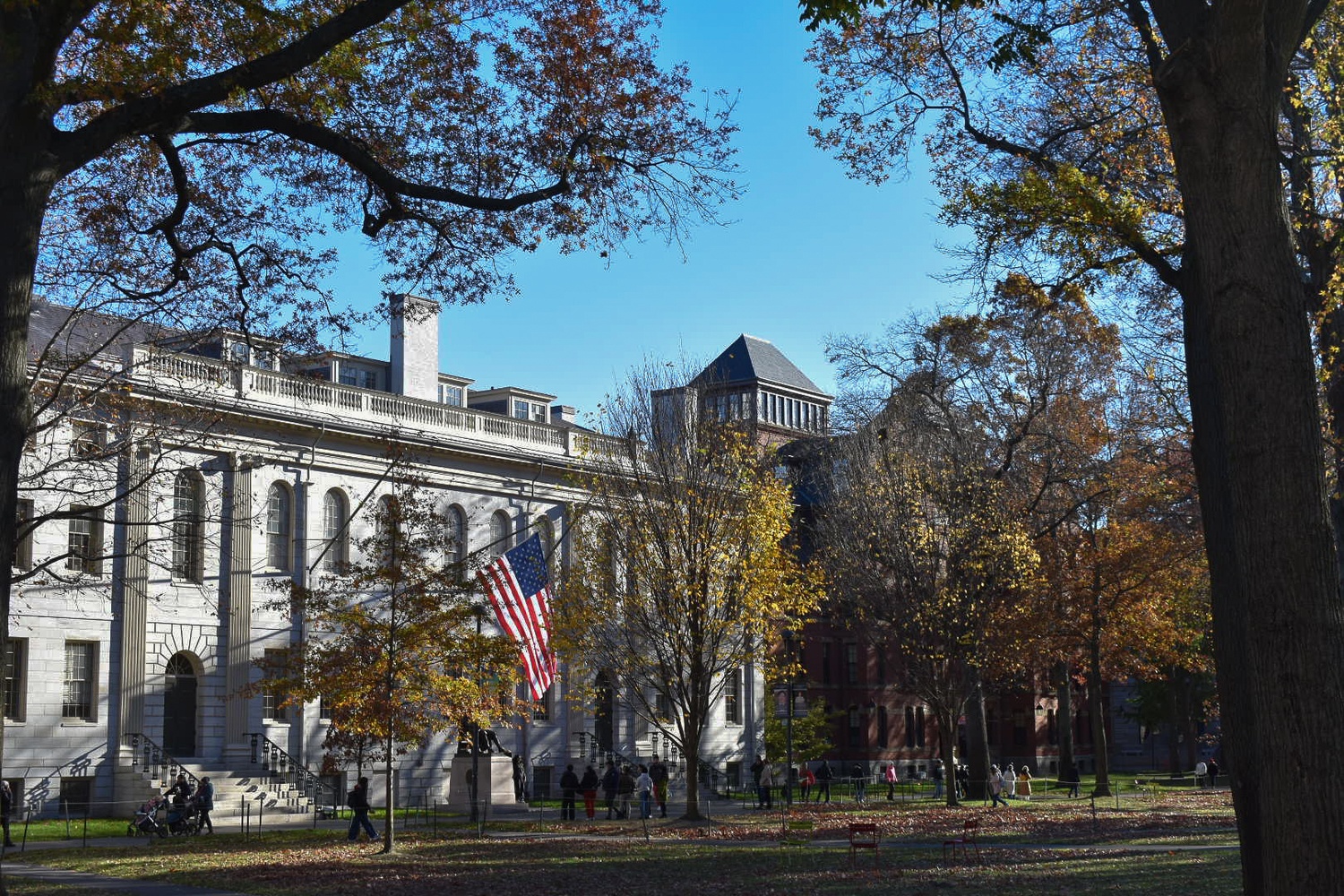
News
Summers Will Not Finish Semester of Teaching as Harvard Investigates Epstein Ties

News
Harvard College Students Report Favoring Divestment from Israel in HUA Survey

News
‘He Should Resign’: Harvard Undergrads Take Hard Line Against Summers Over Epstein Scandal

News
Harvard To Launch New Investigation Into Epstein’s Ties to Summers, Other University Affiliates

News
Harvard Students To Vote on Divestment From Israel in Inaugural HUA Election Survey
DHS Reports on Student, Faculty Protesters Shown in Court for AAUP Trial
A federal judge ordered that five Department of Homeland Security reports on potential criminal activity by student and faculty protesters be shown in court Thursday, overruling the federal government’s repeated requests to keep the documents from the public eye.
The reports — which were revealed during the trial for a lawsuit by the American Association of University Professors — mark the most detailed look yet into the government’s process for researching and eventually attempting to deport noncitizen protesters on university campuses nationwide. The reports included news articles, social media posts, criminal history, and headshots for the five protesters, as well as op-eds they wrote.
The trial playing out in Boston, which entered its fourth day on Thursday, is a key test of the Trump administration’s targeting of student protesters. Harvard’s AAUP chapter joined the national organization, several other local chapters, and the Middle East Studies Association as a plaintiff.
The AAUP’s lawsuit argued that the Trump administration violated the First Amendment by instituting an “ideological deportation policy,” which involves arresting and deporting noncitizen faculty and students who participated in pro-Palestine advocacy. The government has contested that the policy, which is not wholly formalized in writing, exists.
At multiple points in the Thursday hearing, lawyers for the government asked the judge overseeing the case — at times with raised voices — that he keep the documents under wraps. Revealing them, they argued, would compromise the DHS’s internal processes. But the judge, William G. Young ’62, overruled their motions and allowed excerpts from redacted versions of the five reports to be shown in court. The documents will remain under seal, visible to the attorneys and judge only, until a final decision is reached.
The five reports are a small subset of the more than 100 compiled by the federal government on student and faculty protesters across the country. Peter J. Hatch, who leads the DHS’s Office of Intelligence, testified Wednesday that the government drew names for the reports from a list of more than 5,000 students and faculty compiled by Canary Mission, a doxxing site that creates profiles for individuals who they claim “promote hatred of the USA, Israel and Jews.”
The reports serve as the primary documentation of the “fact-finding” that the office conducts, Hatch testified Thursday. He said they contain any information relevant to the subject’s background and potential criminal activity.
The office often looks into individuals based on tips from external sources, but Hatch said the initiative to use Canary Mission was “unique” because of the scale of the group’s list.
Of the 100-plus reports the government created, the AAUP’s lawyers honed in on the five concerning the noncitizen students the AAUP said were targets of the Trump administration’s ideological deportation policy. The list included Tufts University student Rumeysa Ozturk and Columbia University student Mahmoud Khalil, who were both arrested by Immigrations and Customs Enforcement in the spring.
In the report on Ozturk, the only documentation shown in court of potential criminal conduct involved pro-Palestine advocacy she participated in: a pro-Palestine op-ed she wrote for her campus paper and her association with a pro-Palestine group on campus. Ozturk’s arrest was widely perceived as a penalty for her speech on the Israel-Palestine conflict.
The disputes over whether the reports would be shown in court came after months of back-and-forth between the two parties over the procedures of the trial. Lawyers for the government and the AAUP have collectively filed nearly a dozen motions disputing the evidence allowed to be admitted — and publicly shown — in the trial.
On Wednesday, Young ordered the government to provide the AAUP’s lawyers with copies of the reports by 5 p.m. that evening. In the Thursday morning trial, Young admitted five of the reports into evidence, making redacted copies publicly available for the first time.
During the trial on Thursday, Hatch testified that the government exclusively looked into protesters on university campuses. But he maintained that the process his team used to produce the reports of analysis on student protestors was in line with their standard practices. Hatch also emphasized that the reports were purely factual and did not provide judgements, opinions, or recommendations.
The first week of the trial has seen several noncitizen faculty testify that their speech had been chilled by the government’s ideological deportation policy. A citizen professor, Nadia Abu El Haj, said Wednesday that her noncitizen students had also refrained from speaking.
As the case nears the end of the first week, the existence of the ideological deportation policy has emerged as a key point of dispute in the AAUP’s lawsuit. The policy is not formalized in a single written document, but the plaintiffs argue that the government has employed a range of strategies that amount to a direct assault on the immigration status of noncitizens who protested in support of Palestine.
—Staff writer William C. Mao can be reached at william.mao@thecrimson.com. Follow him on X @williamcmao.
—Staff writer Laurel M. Shugart can be reached at laurel.shugart@thecrimson.com. Follow them on X @laurelmshugart.
Want to keep up with breaking news? Subscribe to our email newsletter.

